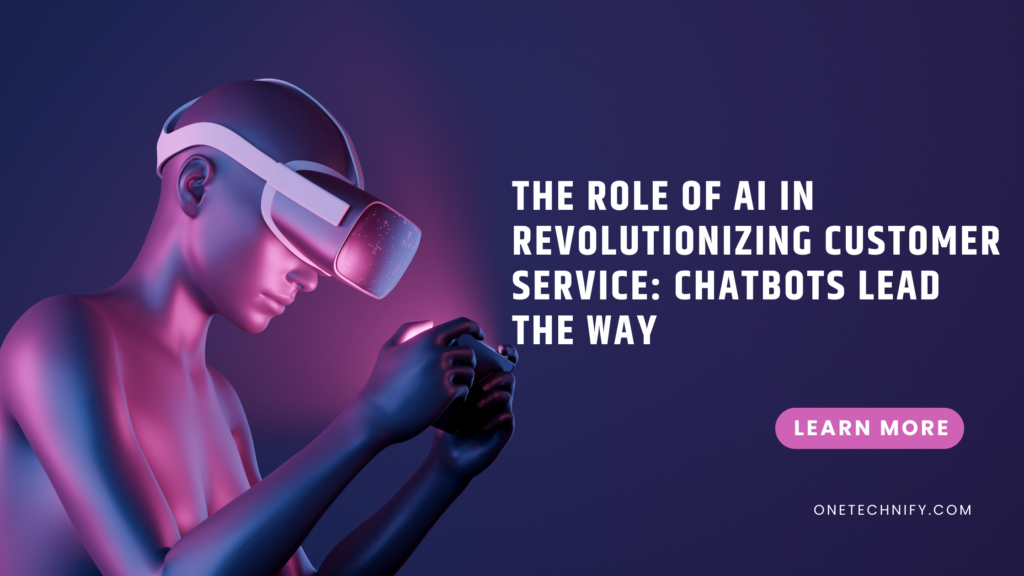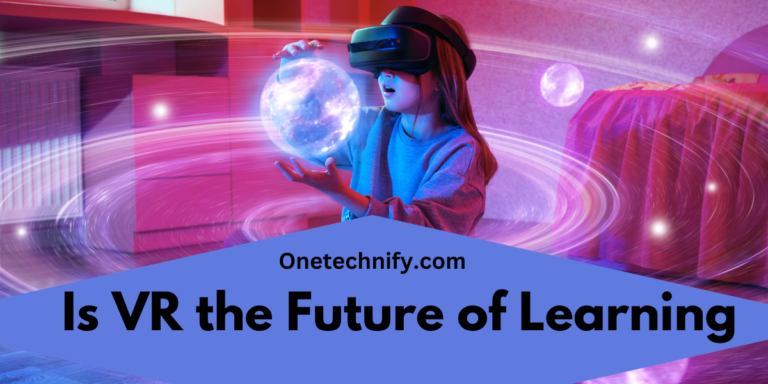Have you ever wondered how companies can provide quick answers to customer questions 24/7 without hiring an army of agents? The answer lies in the role of AI. AI is revolutionizing the way customer service operates, enabling businesses to respond faster and more efficiently to customer queries.
By using AI-powered chatbots, simple queries can be handled automatically, freeing up human agents for more complex issues. Furthermore, AI can analyze vast amounts of customer data to personalize interactions and improve overall satisfaction. Thanks to Natural Language Processing (NLP), AI can understand and respond to customers in a more human-like manner. Machine learning algorithms enable AI to continuously learn from customer interactions and improve its responses over time. With the help of augmented reality, marketing campaigns can also be enhanced to provide customers with a more immersive experience.
Benefits of AI in Revolutionizing the Customer Experience

AI Provides Significant Benefits to Customer Service Experiences
Artificial intelligence (AI) and chatbots have revolutionized the way businesses interact with customers. With AI and bots, companies can now provide personalized experiences that cater to each customer’s needs. AI allows for a more efficient and effective problem-solving process, resulting in faster resolution times and increased customer satisfaction. Additionally, service solutions can be easily integrated with chatbots to provide 24/7 support for customers. AI-powered marketing campaigns can also be created to target specific audiences, resulting in higher conversion rates.
AI Improves the Overall Experience for Customers
One of the potentially significant benefits of using AI in customer support is its ability to improve the overall experience for customers across various channels. By utilizing chatbots or virtual assistants, customers can receive immediate assistance without having to wait on hold or navigate through complex phone trees. AI-powered tools can also perform text analysis to identify areas where improvements are needed, allowing companies to make necessary changes quickly.
Continuous Innovation in AI Leads to Better Customer Service Experiences
As technology continues to evolve, so does the use of AI in customer service. Companies are continually innovating and improving their support with the use of chatbots and artificial intelligence technologies to provide better engagement for their customers. For example, some businesses are using natural language processing (NLP) and sentiment analysis tools to understand customer feedback better and tailor responses accordingly on a specific topic.
AI Allows for Personalized Experiences for Each Individual Customer
Personalization is key, especially when it comes to customer engagement and support. With the help of AI-powered tools like chatbots, companies can gather data on each customer’s preferences and tailor their interactions accordingly. This level of personalization helps build brand loyalty by making customers feel valued and understood on any topic they need assistance with.
The Role of AI in Revolutionizing Customer Service Results in Faster and More Efficient Problem-Solving
Perhaps one of the most significant benefits of using AI in customer support is its ability to solve problems quickly and efficiently across multiple channels. Chatbots powered by machine learning algorithms can analyze vast amounts of data within seconds, providing accurate solutions that would take human agents much longer to arrive at. This enhances the overall customer experience.
The Role of AI in Changing the Landscape of Customer Service
Automating Repetitive Tasks and Focusing on Complex Issues
Artificial intelligence (AI) is transforming the customer service experience by automating repetitive tasks across multiple channels, allowing leaders to focus on more complex issues. By using AI-powered tools, such as chatbots, customer service teams can provide 24/7 support through various channels, reducing wait times and improving the overall customer experience. This allows team members to focus on more complex issues that require human intervention.
Personalization and Anticipating Customer Needs
AI is also changing the game. By analyzing customer data, companies can use AI to anticipate their needs and offer tailored solutions. For example, a company might use data from a customer’s previous purchases to recommend similar products or services they might be interested in. Additionally, chatbots can enhance the customer experience by providing instant support for common inquiries.
Reducing Wait Times and Improving Customer Satisfaction
One of the biggest benefits of AI in customer service is its ability to improve the overall customer experience by reducing wait times. Chatbots can handle simple inquiries quickly and efficiently, freeing up human agents to tackle more complex issues. This not only reduces wait times but also enhances the quality of interactions between customers and agents, resulting in a better customer experience.
Fulfilling AI’s Promise for Customer Engagement
Leaders play a crucial role in fulfilling AI’s promise for customer engagement experience. They must ensure that their teams are properly trained in using new technologies and that they have access to the right service solutions and service channels for the job. Leaders must be willing to invest in these technologies if they want to remain competitive in today’s market.
Will AI Replace Customer Service?
Despite all its benefits, many people wonder whether AI will eventually replace human agents altogether in service solutions. While it’s true that some tasks may become fully automated over time, there will always be a need for human experience and interaction in certain situations. For example, customers may prefer speaking with a human agent when dealing with sensitive or complex issues in their service solutions.
Personalized Customer Engagement with Predictive Analytics
Achieving Personalized Customer Experiences through Predictive Analytics
The role of AI in revolutionizing customer service is undeniable, and one of the most significant ways that businesses can leverage AI is through predictive analytics. Predictive analytics uses customer data to anticipate future behavior and provide personalized recommendations to customers. This technology has the potential to transform the overall customer experience by providing a level of personalization that was once unimaginable.
With predictive analytics, businesses can analyze customer data such as purchase history, browsing behavior, and social media activity to predict what products or services a customer might be interested in based on their experience. By using this information, businesses can personalize their marketing campaigns and engagement strategies to better meet their customers’ needs and enhance their experience.
Providing Personalized Recommendations to Customers
One way that predictive analytics can help businesses provide personalized experiences is by offering tailored product recommendations based on a customer’s past behavior. For example, if a customer frequently purchases running shoes from an online retailer, the business could use predictive analytics to recommend other running-related products like athletic apparel or fitness trackers.
This type of personalization not only helps customers discover new products they may be interested in but also enhances their overall experience with the business. AI chatbots and AI tools can be utilized to provide this personalized experience to customers. When customers feel understood and valued by a business, they are more likely to continue doing business with them.
Personalizing Customer Interactions and Support Based on Customer Data
Another way that predictive analytics can enhance the overall customer experience is by personalizing interactions between customers and support teams. By analyzing previous interactions with a specific customer, support teams can tailor their responses based on that individual’s preferences and communication style.
For instance, if a particular customer with a preference for concise answers over lengthy explanations seeks support for an issue with their product or service, the support team could adjust their approach accordingly using AI chatbots and tools. This level of personalization, enabled by AI algorithms, helps ensure that every interaction between a business and its customers feels meaningful and valuable, enhancing the overall experience.
Precision and Efficiency in Customer Service with AI
Enhanced Efficiency in Customer Service with AI Technology
Artificial intelligence (AI) technology has revolutionized the way businesses operate, especially. One of the most significant advantages of using AI in customer service is its ability to enhance efficiency. With AI tools, businesses can reduce wait times and increase customer satisfaction by providing real-time support.
For instance, chatbots powered by AI algorithms can handle a large volume of inquiries simultaneously, without getting tired or taking breaks. These chatbots can also respond quickly to customers’ needs and provide personalized solutions based on their inquiries.
Personalized Recommendations and Solutions with AI Tools
Another benefit of using AI technology for customer service is that it enables businesses to analyze customer data and provide personalized recommendations and solutions. By analyzing customers’ purchase history, browsing behavior, preferences, and feedback, businesses can tailor their offerings to meet individual needs.
For example, Netflix uses an advanced recommendation algorithm that suggests movies and TV shows based on users’ viewing habits. Similarly, Amazon’s recommendation engine analyzes customers’ purchase history to suggest products they might be interested in buying. With the help of AI algorithms and AI tools, companies can also develop AI chatbots to provide personalized customer service.
Proactive Problem-Solving with AI Algorithms
AI algorithms are capable of detecting patterns in customer behavior that humans might miss. This allows businesses to be proactive about addressing potential issues before they become major problems.
For instance, airlines use predictive analytics algorithms to identify passengers who are likely to miss their flights due to traffic or other factors. They then proactively reach out to these passengers with alternative travel options so that they don’t miss their flights. This personalized customer experience not only helps increase customer loyalty but also reduces the need for customer service chatbots to handle missed flight inquiries.
Enhancing Product Recommendations and Decision-Making with AI
Personalized Product Recommendations
Artificial Intelligence (AI) has revolutionized customer service by providing personalized product recommendations to customers. Recommendation engines powered by machine learning algorithms analyze customer data such as purchase history, search queries, and browsing behavior to provide tailored suggestions. These recommendations are unique to each customer and become more accurate over time as the algorithm learns from past interactions.
Augmented Reality Solutions
Augmented reality solutions, powered by AI algorithms, take personalization a step further by allowing customers to visualize products in real-world settings before making a purchase decision. By using their mobile devices or specialized equipment, customers can see how products would look in their homes or on their bodies without physically trying them on. This technology provides a more immersive shopping experience that helps customers make informed decisions, and with the help of AI chatbots, it allows for personalized recommendations and assistance throughout the entire process.
Predictive Models for Customer Preferences
AI can tell what you like to buy and suggest things you might want to buy. This helps stores sell more stuff and figure out what people like to buy.
Seamless Customer Service Experiences
Apps that utilize AI technology provide seamless and efficient customer service experiences. Chatbots powered by natural language processing (NLP) allows customers to get immediate assistance with common inquiries such as tracking orders or changing account information. These chatbots can handle multiple conversations simultaneously, reducing wait times for customers while freeing up staff members for more complex inquiries.
Voice Recognition and Natural Language Processing in Customer Service
Improving Response Times in Customer Service Operations
The use of voice recognition and natural language processing can revolutionize the customer service experience by improving response times. With AI-powered chatbots, customers can receive immediate responses to their inquiries without having to wait for a human agent to become available. This not only improves response times but also reduces the workload on human agents, allowing them to focus on more complex issues.
Understanding Customer Queries and Providing Accurate Solutions
Natural language processing enables AI to understand customer queries and provide accurate solutions. By analyzing the customer’s query, AI can determine what the customer needs and offer relevant solutions. This not only saves time but also ensures that customers are provided with suitable service solutions.
Analyzing Conversations Through Text Analysis
Conversations with customers can be analyzed through text analysis, allowing for better customer feedback. By analyzing conversations between customers and chatbots, companies can gain insights into what their customers need and how they feel about the service they receive. This information can then be used to improve service channels and better meet customer needs.
Reducing the Need for Human Intervention in Customer Inquiries
The use of voice recognition and natural language processing reduces the need for human intervention in customer inquiries. Chatbots powered by AI technology can handle many simple inquiries without requiring a human agent’s assistance. This frees up agents’ time, allowing them to focus on more complex issues that require their expertise.
Chatbots and Virtual Assistants: The Rise of Automated Customer Support
In conclusion, AI technology has revolutionized the way customer service is delivered. With the rise of chatbots and virtual assistants, businesses can now provide automated customer support that is available 24/7. Personalized customer engagement with predictive analytics has also become possible, ensuring that customers receive tailored recommendations and solutions to their problems.
Precision and efficiency in customer service are other benefits of AI technology. Businesses can now handle a large volume of customer queries simultaneously without compromising on quality. Voice recognition and natural language processing have also made it easier for customers to interact with businesses.
AI, which stands for Artificial Intelligence, is like having a super smart robot friend that can help businesses provide better customer service. It’s cool because AI can learn and understand what customers like and don’t like. This means that when you go to a website or use an app, AI can suggest products or services that you might be interested in. It’s kind of like having your shopper! AI can also help businesses make important decisions by analyzing lots of data and giving recommendations.
This saves time and makes sure that businesses are making the best choices for their customers. Plus, AI can give businesses insights into what customers want and need. This helps them create products or services that people will love. So, if businesses want to be successful in today’s world, they need to embrace AI and use it to make their customer service the best it can be!
FAQs
Q1: Can chatbots replace human customer service representatives?
While chatbots can efficiently handle basic customer inquiries, they cannot entirely replace human representatives in providing customer service solutions for complex customer interactions and customer support issues.
Q2: Is AI technology expensive?
The cost of implementing AI technology for customer service solutions and chatbots varies depending on the type of business and its needs. However, there are affordable options available for small businesses to enhance customer experiences and provide support.
Q3: Are there privacy concerns when using AI in customer service?
A: Yes, privacy concerns do exist when using AI in customer service. However, businesses can address these concerns by being transparent about their data collection practices.
Q4: How does predictive analytics work in personalized customer engagement?
Predictive analytics, powered by machine learning algorithms, can analyze data from various sources to accurately predict future outcomes. This technology can be leveraged to enhance customer experiences by incorporating AI chatbots and customer service solutions, such as customer service chatbots.
Q5: Are there any ethical considerations when using AI in decision-making processes?
Yes, ethical considerations do exist when using AI in customer service solutions such as chatbots for customer support and improving customer experience. Businesses must ensure that their decisions align with ethical principles and do not discriminate against any group of people.






